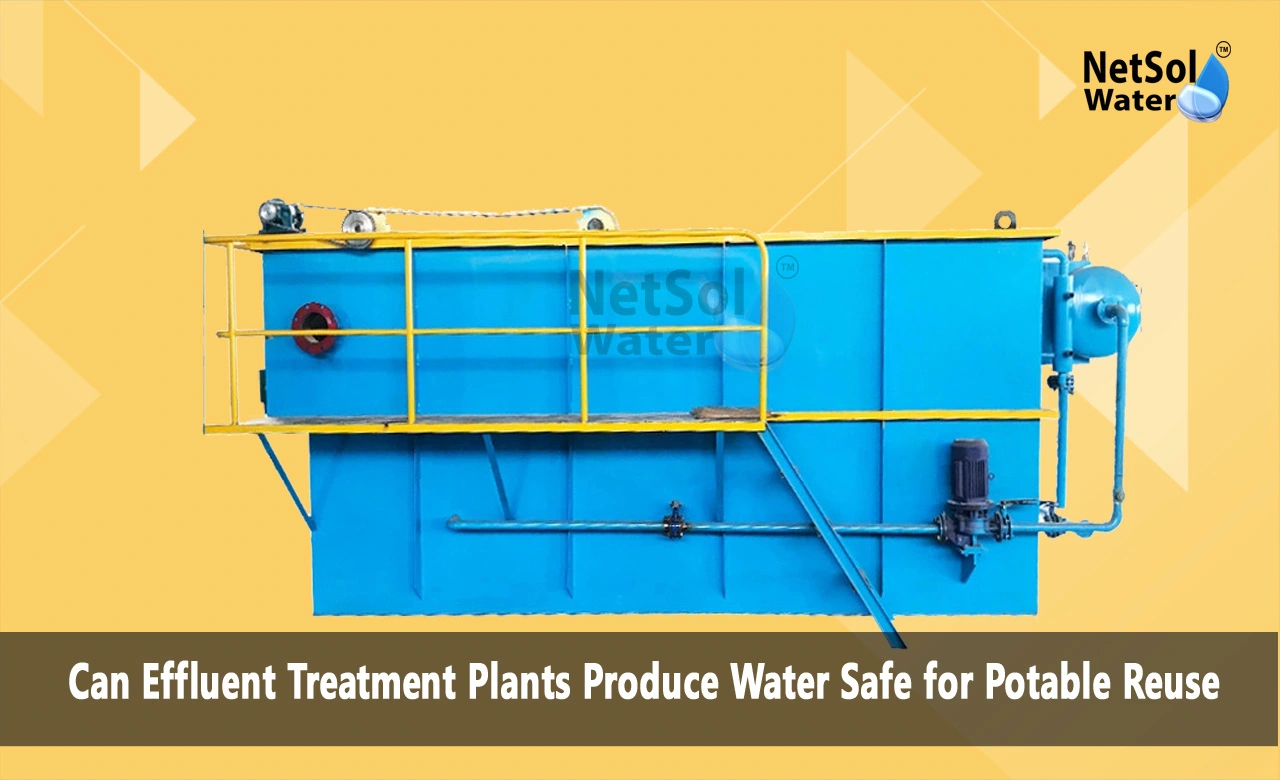Can ETP Plants Produce Water Safe for Potable Reuse?
Water is a valuable resource, and as the demand for freshwater continues to rise, it's become essential to look into alternative sources. One such source is treated wastewater, also called effluent. Effluent Treatment Plants (ETPs) are essential for cleaning this wastewater to make it usable for different purposes, including drinking. We'll explore the details of ETP plants and their capability to produce safe drinking water.
Understanding Effluent Treatment Plants
Effluent Treatment Plants are facilities meant to treat wastewater from domestic, industrial, or commercial sources before releasing it into the environment or reusing it for certain purposes. These plants use different treatment methods to eliminate contaminants and impurities from the wastewater.
The treatment process typically involves several stages:
Preliminary Treatment: This stage involves the removal of large solid objects, such as rags, sticks, and debris, using screens and grit chambers.
Primary Treatment: During this stage, a significant portion of the suspended solids and some organic matter is removed through sedimentation tanks or clarifiers.
Secondary Treatment: This stage focuses on removing dissolved organic matter and nutrients (nitrogen and phosphorus) through biological processes, such as activated sludge systems or trickling filters.
Tertiary Treatment: Depending on the intended use of the treated water, Effluent Treatment Plants may include additional processes, such as filtration, disinfection, and advanced oxidation, to further purify the water.
The Role of Effluent Treatment Plants in Potable Reuse
Potable reuse involves treating wastewater to a standard that renders it safe for human consumption as drinking water. Effluent Treatment Plants play a pivotal role in this process by guaranteeing that the treated water meets rigorous quality criteria for potable reuse.
To produce water safe for potable reuse, Effluent Treatment Plants employ advanced treatment technologies, including:
Membrane Filtration: This process involves the use of semi-permeable membranes, such as microfiltration, ultrafiltration, nanofiltration, or reverse osmosis, to remove dissolved solids, organic matter, and other contaminants from the water.
Advanced Oxidation Processes (AOPs): AOPs utilize strong oxidizing agents, such as ozone, hydrogen peroxide, or ultraviolet light, to break down and remove recalcitrant organic compounds, pharmaceuticals, and other emerging contaminants.
Disinfection: Effluent Treatment Plants employ various disinfection methods, such as chlorination, ultraviolet radiation, or ozonation, to inactivate pathogenic microorganisms and ensure the water is safe for consumption.
Post-Treatment Processes: Additional processes, such as pH adjustment, remineralization, and corrosion control, may be employed to ensure the treated water meets aesthetic and quality standards for potable reuse.
Challenges and Concerns
While Effluent Treatment Plants have the potential to produce water safe for potable reuse, there are several challenges and concerns that need to be addressed:
Public Perception and Acceptance: Despite the rigorous treatment processes, there is often a stigma associated with drinking treated wastewater, and gaining public acceptance can be a significant challenge.
Contaminants of Emerging Concern (CECs): Effluent Treatment Plants may struggle to remove certain CECs, such as pharmaceuticals, personal care products, and endocrine-disrupting compounds, which can have potential health effects.
Monitoring and Regulation: Stringent monitoring and regulation are crucial to guarantee that the treated water meets all quality standards and guidelines for potable reuse. However, this process can be resource-intensive and costly.
Energy and Resource Demands: Advanced treatment processes employed by Effluent Treatment Plants for potable reuse can be energy-intensive and resource-demanding, which may raise concerns about sustainability and environmental impact.
Case Studies and Examples
Several cities and regions around the world have implemented potable reuse projects using treated effluent from Effluent Treatment Plants. Here are a few examples:
Namibia: The Goreangab Reclamation Plant in Windhoek, Namibia, has been producing potable water from treated wastewater since the 1960s, making it one of the world's pioneers in potable reuse.
Singapore: Singapore's NEWater project, initiated in 2003, involves the treatment of wastewater through advanced membrane technologies and ultraviolet disinfection, producing high-quality reclaimed water for potable reuse.
Perth, Australia: The Groundwater Replenishment Scheme in Perth, Australia, has been operating since 2017, using advanced treatment processes, including ultrafiltration, reverse osmosis, and ultraviolet disinfection, to produce high-quality water for potable reuse.
These examples demonstrate that Effluent Treatment Plants, when equipped with advanced treatment technologies and rigorous monitoring systems, can indeed produce water safe for potable reuse.
Conclusion
Effluent Treatment Plants (ETPs) are pivotal in producing water safe for potable reuse. Through advanced treatment methods like membrane filtration, advanced oxidation processes, and disinfection, these plants effectively eliminate contaminants and impurities from wastewater, making it suitable for human consumption.
Despite challenges such as public perception, emerging contaminants, monitoring and regulation, and energy and resource demands, many cities and regions worldwide have successfully implemented potable reuse projects utilizing treated effluent from ETPs.
As freshwater becomes scarcer, potable reuse from ETPs offers a feasible and sustainable solution to combat water scarcity. With ongoing research, technological progress, and public awareness, producing safe and dependable potable water from treated effluent can become more widespread, contributing to water security and environmental sustainability.
Do you need an advice or assistance on selecting the best water and waste water treatment unit? We have solutions for all your problems!
Let us know your problem, our experts will make sure that it goes away.
For an assistance or related query,
Call on +91-965-060-8473 Or write us at enquiry@netsolwater.com



